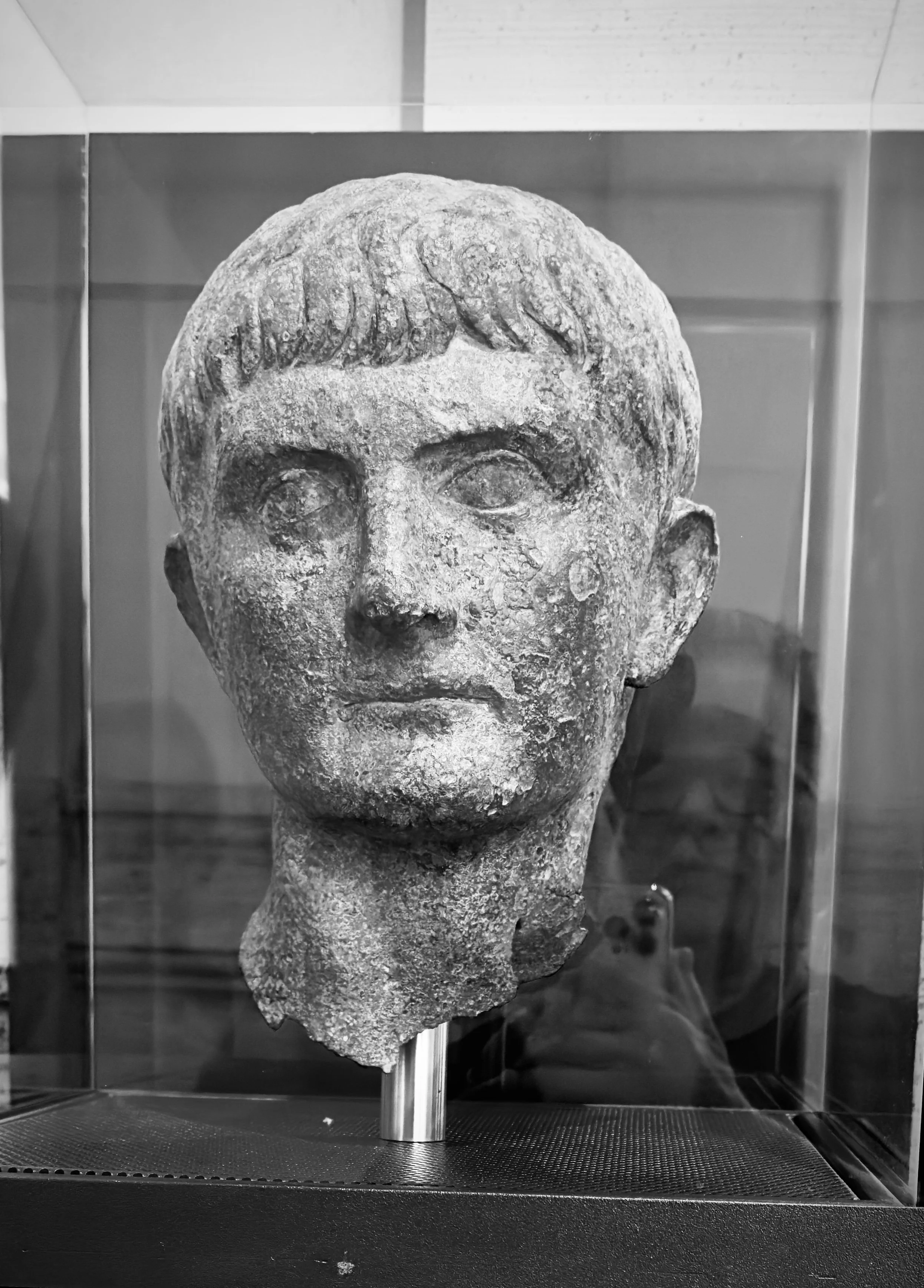FUN WITH LATIN #2: TIME TO MARCH!
The Roman general Germanicus. He was kind of a big deal.
The Roman army was stationed all over the empire, which at its peak around 125 AD, stretched from modern Scotland to the Sahara, and from Portugal to Iraq. And except for the highest officers who rode in carriages or on horseback, the overwhelming majority of the army reached its destination by walking. A legionary could travel thousands of miles for a single campaign, or tens of thousands over a career - on foot. (Let that sink in!)
But the train wasn’t just soldiers. Armies needed support, and that came in the form of camp followers. The Roman military operated with a level of logistical excellence we can barely fathom today. Lacking anything like electricity or the internet, they compensated with people — a lot of them. Roughly speaking, there was one camp follower for every soldier. So a deployment of 30,000 troops could mean a moving population of 60,000.
These followers were civilians in their multitudes. They transported the mountains of grain, olive oil and wine that were daily staples for the soldiers. Animal wranglers managed not only the donkeys and the strong-but-sloooow oxen, but also the fish, fowl, rodents and other creatures the Romans ate.
There were blacksmiths to forge — and armorers to maintain — shields, swords and greaves; tailors to mend tunics; and milliners to adjust helmets.
Cobblers churned out the hobnailed caligae — something between a sandal and a boot. The military hero Germanicus (pictured) raised his children in the camps, including young Gaius, who toddled around in his own miniature pair. Soldiers affectionately called him “bootykins,” or in Latin, Caligula — a nickname no one dared use once he became emperor.
The list of followers goes on: cooks, fullers (launderers), medics, and a large team of administrators handling everything from pay to promotions and discharges. Merchants, priests, entertainers, prisoners of war, slaves, hostages and, of course, prostitutes all played their part in a campaign.
Then as now, maintaining supply lines was critical. While a soldier could be force-marched 40 or more miles a day, the camp followers didn’t — couldn’t — move that quickly (again: the oxen). They tended to fall behind, and sometimes days-long gaps opened between the army and its support train. Soldiers protected them as best they could, but the larger the gap, the more vulnerable the followers were to attack and looting.
Finally, to the point: the collective name in Latin for this mass of people, supplies and animals was impedimenta — the origin of our English word for anything that gets in the way or slows us down: impediment.


